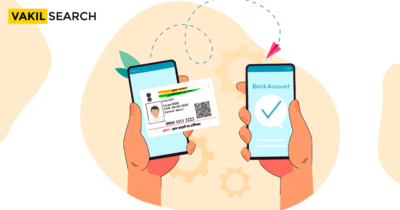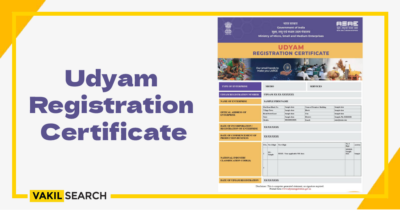This article explores and mentions the different facets of the MSME scheme introduced by the government and their influence on business in this economy. Read on to know!
One of the most prolific, quaint, and heavy contributors to the economy are small enterprises. In India, the produce, goods, and services of Micro, Small and Medium Enterprises MSME Registration fees for businesses are second only to agriculture in their role and influence over the country’s economy. Therefore, any mismanagement or disorderly analyses of the same could be a huge impediment purely because of improper delegation of attention towards the smooth sailing of these businesses.
Micro, Small and Medium Enterprises Registration – Perks and Needs
Through Micro, Small & Medium Enterprises schemes, the government directly facilitates its schemes, initiatives, grants and rate subsidies.
- The most beneficial role of registering one’s businesses under Micro, Small & Medium Enterprises, is the loans come easy, and the huge risk factor of providing a loan guarantee to the money lending bank or financial institution, is gone completely (without providing any collateral on the business loans)
- In its stead, the government provides a guarantee for the owner, on their behalf, for which it also puts loan money in the banks
- The government also offers easy interest rates, that don’t impede but encourage the small business owner to actually make use of the loan money and not worry about a looming deadline of repaying it or facing worse consequences
- On many occasions, micro and small businesses are completely exempted from paying interest on borrowed amounts
- The subsidy rates don’t just exist or aren’t just offered on loans. If the business idea is very novel to the market, a registered enterprise could patent that idea for 50% subsidized rate than it would have to otherwise (if unregistered); to have to safeguard the privacy and retain entitlement to the idea.
- The government has introduced something into the Micro, Small & Medium Enterprises book of schemes called the Government Store Purchase program. Through this, it ensures to purchase and prioritise and prefer the purchase of services and products and hiring of workers, exclusively from Micro, Small & Medium Enterprises registered businesses, and not Micro, Small & Medium Enterprises unregistered. A reservation policy (of buying 300 services and goods from this sector alone) such as this never fails the market value of these businesses and they have a steady flow of funds and loan repayment is unchallenging.
- The government offers official bodies and lawyers to settle disputes in case of late repayment of loans by such businesses, this makes the process hassle-free and doesn’t defame one’s business
- Moreover, if a registered enterprise of Micro, Small & Medium Enterprises is supplying goods to a buyer, then they are entitled to receive the payment on an agreed-upon date, if the buyer fails to pay on the mentioned date, then the buyer is given an additional period of time which requires him to pay for the goods 15 days after the day of receiving. If even then, the buyer fails to meet the deadline, then they should have to pay interest on the amount every day, the longer they wait, the more he has to pay. Though disadvantageous for the buyer, it helps the entrepreneur not have any debts or money left to pay to him.
- Besides these, there is other direct funding provided by the government as aid for business growth and employment of a greater number of individuals through these enterprises.
- Additional benefits include reduced metre bills for electricity consumption and making the maintenance and production cost-effective. The government also encourages businesses to get ISO certified, which helps them fall to light in overseas and foreign trade and large international export exhibitions, which helps reimburse a lot of the cost of business and certainly publicise the idea and exercise entrepreneurship in bigger spaces.
Eligibility or categories of business
Any proprietorship, private company, individual, party- most importantly categorized into groups below:
- Micro enterprises- ones that invest 1 crore rupees for a turnover of 5 crores
- Small enterprises- ones that invest up to 10 crore rupees for a turnover of 5 to 50 crores
- Medium enterprises- ones that invest up to 20 crores for a turnover of 50 to 100 crores
Why should one consider registering anyway?
Despite the optional nature of Micro, Small and Medium Enterprises registration of small and medium scale businesses and enterprises, it is only advisable to register because entrepreneurs yielding turnovers spanning from making minor to huge investments, can all maximise and reap the benefits the government has entitled them to and shall provide for, and can avail easy capital loans and credit line loans. Great management of businesses is offered alongside the primary benefits of government preferential prioritization and subsidies and loan guarantees.
How to go about the Registration process- easy/ time-taking?
For most people, the portal and registration of Micro, Small & Medium Enterprises is a cakewalk, uncomplicated and quick. It demands a simple set of details. It divides the enterprise into three categories, namely micro, small and medium depending upon the investments and turnovers of the respective businesses. One needs to have a few documents as proofs, none to submit. They mostly need to be self-certified by the owner along with a few official details to be provided of their own. Multiple businesses can be registered under MSME with the government under the same Unique identification code or Aadhar Card Number of the owner.
Steps for Micro, Small and Medium Enterprises Registration
- Log into the MSME portal’s website
- Put in one’s Aadhar Card number, name, and other details asked for
- Mobile number, for generating an OTP to keep the form unique, shall be asked
- The NIC code will be asked for
- Permanent Account Number, location, and nature of the business
- Address of the business and the owner’s
- Address of closest DIC
- Number of employees as well as nature of business/ services provided
- Category of owner
- Entry of copies of sales and purchase bills, investment records in equipment, etc
- Memorandum and Articles of Association need to be produced too
Guide to Register for Micro, Small & Medium Enterprises
Small businesses registered under Micro, Small & Medium Enterprises Act as MSME/SSI need financial assistance or grants like donations or easy loans. Hence every business should enroll itself under the Micro, Small & Medium Enterprises Act with the government for the development of both, the business and the country at large.
- Go to Micro, Small and Medium Enterprises registration.org, the official website
- A set of business detail related data will be expected to be produced and filled, like the name and type of business, number of employees, nature of service, proofs, address, GST number: https://services.gst.gov.in/services/searchtp/ tin number etc
- Some personal details of the owner are asked next, most importantly one’s the unique ID number of Aadhar Card and PAN Card, a photograph of specified dimensions.
- Once all these details are entered, the applicant needs to submit them for verification by an executive.
- In case of any changes or discernible flaws or mistakes, the applicant may have to correct and re-upload the form on the portal following the same steps.
Micro, Small & Medium Enterprises Fee for Small business
- The cost of registration with Micro, Small & Medium Enterprises on the official government portal is zilch, it is free of cost service, to enable and encourage more rampant and frequent registration of these service businesses under the government.
- However, special services like automated or precise filling are offered by several service companies who charge a fee for doing the same on the behalf of the applicant. For example, one can purchase a completed Udyog Registration under Micro, Small & Medium Enterprises from any part of the country for Rs 1500.
CONCLUSION
Small business in India contributes an astonishing 70% to the GDP. It has been instrumental in providing plenty of job opportunities, and growth opportunities, in both local and national stakes of service. Several think tanks economists of India, have advised the government to never turn a blind eye to the management, administration, and direction of efforts and manpower that goes into executing the business, the entrepreneurship yields. The paperless, uncomplicated, and free registration is a great step ahead to include more and more people and businesses under the government, with attractive benefits.
Read more,










